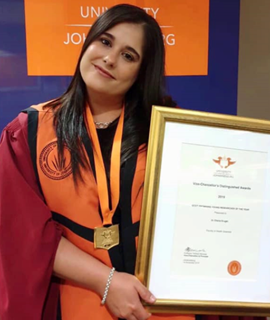Title : The Antibacterial Effect of Cannabis sativa Complementary Medicine Preparations on Clinically Relevant and Pathogenic Strains of Staphylococcus Species in vitro
Abstract:
Staphylococcus is a nosocomial, opportunistic, and highly pathogenic bacterium that forms part of normal human skin commensals. When patients have weakened immune systems, these bacteria tend to over colonise and if left untreated can cause toxic shock syndrome, septicaemia, as well as pneumonia, endocarditis, or bone infections. Staphylococcus strains over the years have been able to build up resistance mechanisms to conventional antibiotic treatment, and annually report excessively high mortality rates globally.
Studies have reported that Cannabis sativa whole plant solvent potentisation preparations, as well as purified non-psychoactive cannabinoids from the Cannabis sativa plant exhibit favourable antibacterial properties against various pathogens. However, the outcomes of these various studies became questionable when whole plant solvent potentisation preparations and purified cannabinoids were combined in the presence of psychoactive Δ9-THC and suspended in various diluents or investigated individually. Nevertheless, other studies have stated that Cannabis sativa secondary plant metabolite seed and leaf essential oil extracts that were rich in terpenes and flavonoids exhibit excellent antibacterial properties against Staphylococcus species growth when utilised as a diluent.
The aim of this study was to determine if Cannabis sativa D6 complementary medicine ethanol preparations versus chemically isolated and pure cannabinoids plant extracts (Cannaoil) can be effectively used to treat clinically relevant, multidrug resistant pathogenic strains of Staphylococcus species in vitro. The antimicrobial activity of Cannabis sativa D6 homeopathic ethanol preparations versus Cannaoil phytomedicine extracts was tested against 12 pathogenic Staphylococcus species strains using the Kirby-Bauer Disc Diffusion Method with the growth measured 24 hours after treatment.
The results showed that the Cannaoil was able to limit the growth of 83% of the different Staphylococcus species that were examined. The Cannabis sativa D6 did not generate antimicrobial effects, it is possible that the minimal dose or lower concentration of the active component played a role in this result. Cannaoil has successfully proved its clinical efficacy, as well as its tolerability and in vitro activity, against some of the pathogenic Staphylococcus species. This study could encourage a new field for further research in relation to its antimicrobial properties for the treatment of human Staphylococci infections.
Audience Take Away:
- Explain how the audience will be able to use what they learn? The audience will learn from this presentation that Complementary Medicines such as Cannabidiol, can be utilized as an alternative antimicrobial agent. Since this research incorporates comparing conventional antibiotics with alternative drugs in antimicrobial resistant (AMR) microorganisms this will open an audience’s perception to be more open to considering Complementary Medicines and how they are researched and used.
- How will this help the audience in their job? This presentation is multidisciplinary and so will target many research professionals, as well as medical practitioners and pharmacists in relation to being more open in their jobs to consider either researching, prescribing, or developing complementary medicines as an alternative for AMR diseases.
- Is this research that other faculty could use to expand their research or teaching? Yes, this research can allow other faculties to expand their research in relation to not only investigating alternative synthetic medicinals for AMR, however, also consider investigating natural plant resources and phytochemicals as a solution. This research could also encourage other researchers to continue investigating the benefits of utilizing Cannabidiol to treat other AMR microorganisms.
- Does this provide a practical solution to a problem that could simplify or make a designer’s job more efficient? Yes, this research provides a practical solution in relation to suggesting alternative complementary medicines such as Cannabidiol to solve the problem of AMR, as well as encourage pharmacists to consider incorporating these solutions not their jobs for further developments.
- Will it improve the accuracy of a design, or provide new information to assist in a design problem? This research is novel and in vitro so it will provide new information in relation to considering Complementary Medicines such as Cannabidiol, as an alternative to be further researched and developed in order to try and combat AMR.
- List all other benefits. This presentation will describe and alternative medicinal benefit of the utilization of Cannabidiol, that when utilized in the correct form, it can be applied to treat Staphylococci infections, which in most cases present AMR to conventional antibiotic based treatments.


